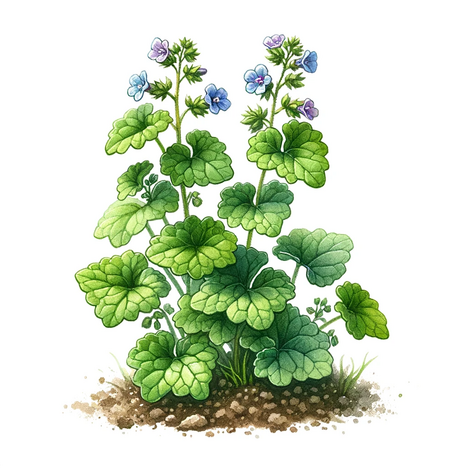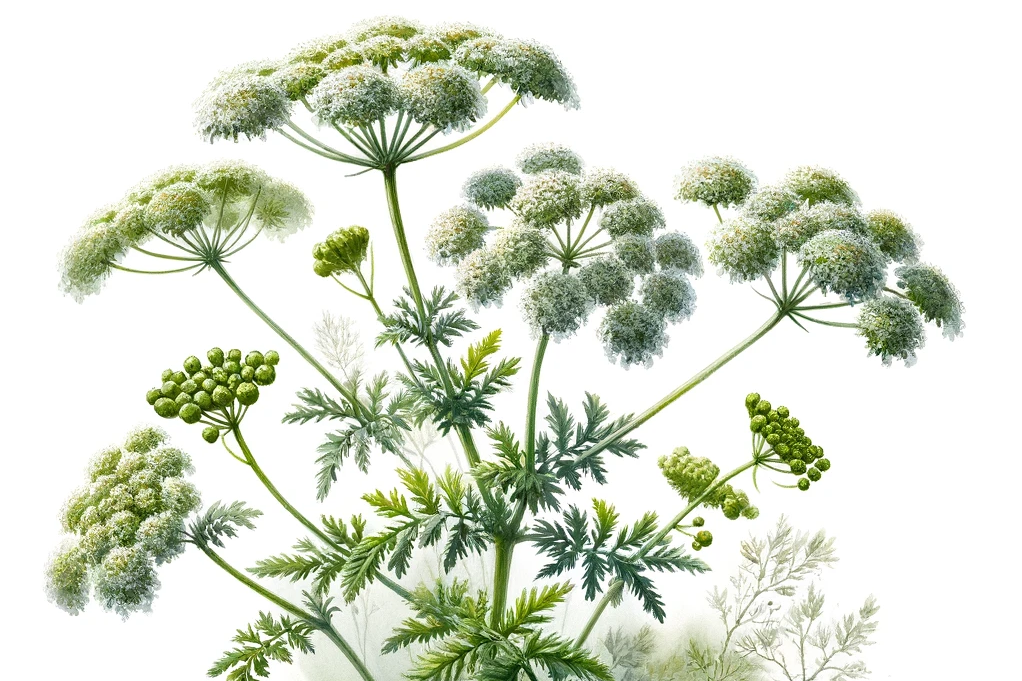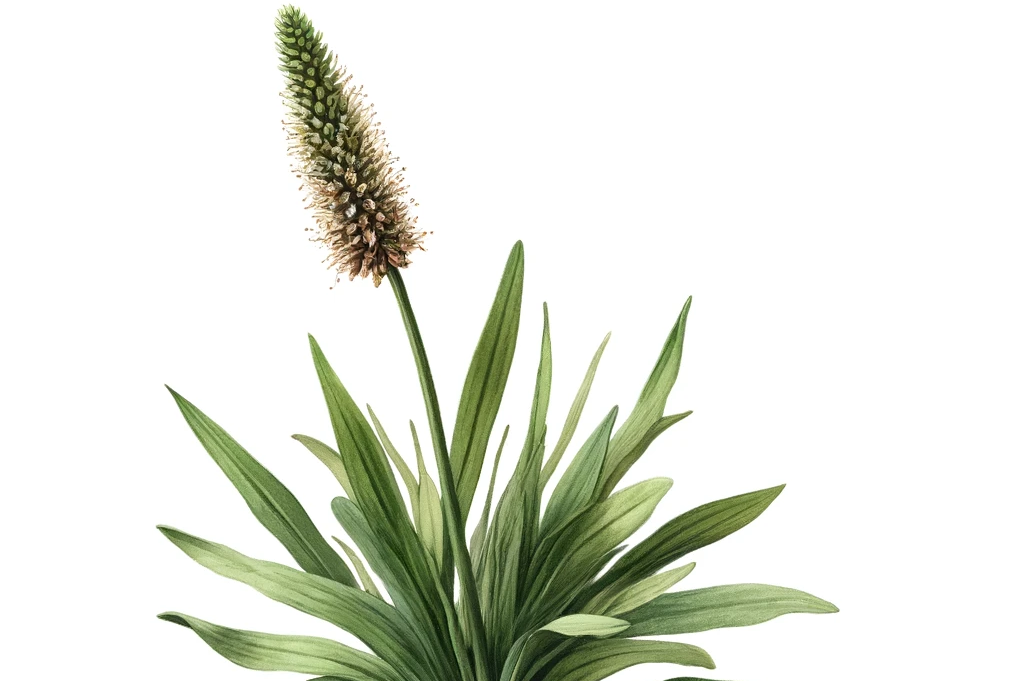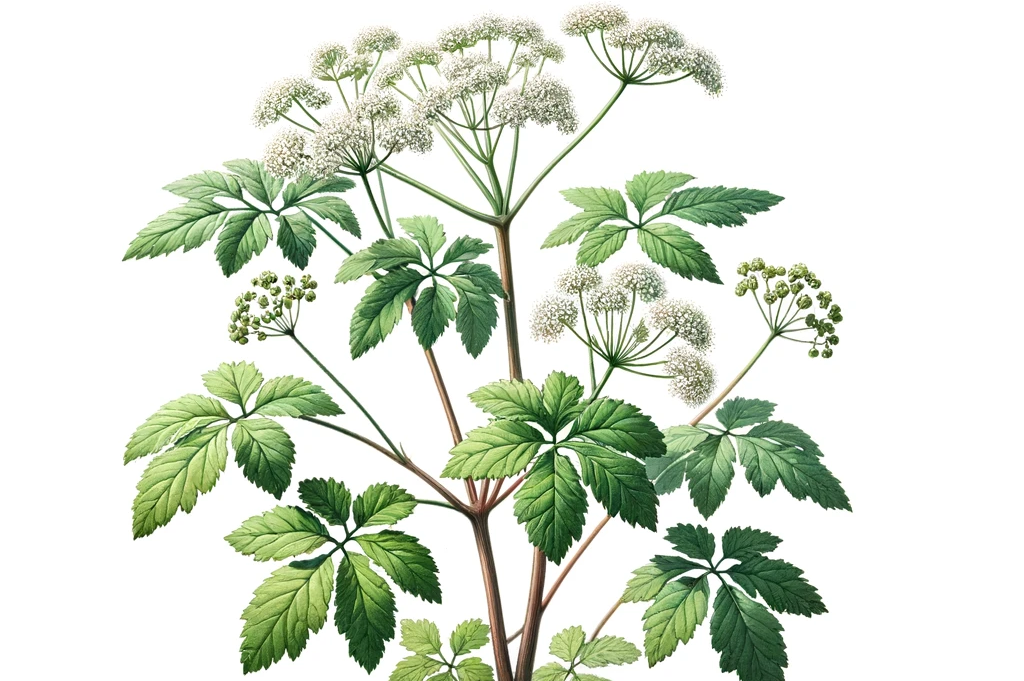Groundsel

Ground ivy, also known as groundsel, is a plant that is native to many gardens and forests in Europe and is perceived as an inconspicuous herb at first glance. However, this green plant holds interesting secrets for both humans and dogs. In this article, we take a deep dive into the world of ground ivy to explore its properties, potential benefits and possible risks associated with dogs. We provide a comprehensive look to help dog owners make an informed decision about including this herb in their pets' diets.
What is ground ivy?
Ground ivy (Glechoma hederacea) is a perennial, ground-covering plant that has been used in traditional medicine for centuries. With its heart-shaped leaves and delicate purple flowers that appear in spring and early summer, ground ivy is not only a feast for the eyes, but has also been valued for its anti-inflammatory, expectorant and digestive properties.
Ground ivy and dogs: a natural remedy?
Potential benefits
- Natural respiratory support: Traditionally, ground ivy has been used to relieve coughs and other respiratory ailments. This property can also potentially benefit dogs, especially those with mild forms of bronchitis or colds.
- Digestive aid: Ground ivy is known for its digestive properties, making it a potential supplement for dogs with mild digestive disorders.
- Anti-inflammatory: The plant contains compounds that may have an anti-inflammatory effect, which could be helpful for dogs with skin irritations or minor inflammations.
Risks and concerns
Despite its potential benefits, ground ivy also carries risks for dogs, especially if consumed in excess:
- Toxicity at high doses: as with many medicinal herbs, consuming large amounts of ground ivy can be toxic to dogs. Symptoms of overdose can include vomiting, diarrhea and lethargy.
- Allergic reactions: Some dogs may be sensitive to certain plants. An allergic reaction to ground ivy, although rare, should not be ruled out.
- Interaction with medications: Ground ivy may interact with certain medications. Dog owners should therefore consult a vet before introducing it into their dog's diet.
Recommendations for dog owners
- Moderation is key: If you are considering introducing ground ivy into your dog's diet, start with small amounts and watch your dog's reaction carefully.
- Expert advice: Consult a veterinarian or a veterinary practitioner specializing in herbs to ensure the safe use of ground ivy for your dog.
- Home-grown: If possible, grow ground ivy yourself to ensure that your dog is not ingesting plants contaminated with pesticides.
Enjoy with caution
Ground ivy offers an intriguing mix of potential benefits and risks for dogs. While the plant can offer health benefits in small amounts, caution is advised to avoid overdosing and potential side effects. Ultimately, when used responsibly, ground ivy can be a valuable addition to a healthy lifestyle for dogs, but the key is moderation and awareness of your own dog's individual needs and reactions.
If you notice any signs of hypersensitivity or poisoning in your dog, you should see your vet immediately. We are not a substitute for a vet, but we try to be as accurate as possible. Every dog reacts differently and we recommend you get a second opinion or consult your vet if in doubt.
Stay healthy and take good care of your four-legged friend!😊
Similar to Groundsel
Stinging nettles are herbaceous plants from the nettle family. They grow in Europe, Asia and North America and prefer moist, nutrient-rich locations. The best-known species are the common nettle...
Yarrow (Achillea millefolium) is a perennial plant from the Asteraceae family. It has finely pinnate leaves and white or pink flowers that are arranged in flat umbels. The plant grows to a height of...
Ribwort plantain (Plantago lanceolata) belongs to the plantain family and is native to Europe, Asia and North Africa. It grows mainly on nutrient-rich soils and is very adaptable. Ribwort plantain...
Goutweed, also known as goat's foot or ground elder, is a perennial plant from the umbellifer family (Apiaceae). It is native to Europe and Asia and has spread to many parts of the world. Goutweed...



